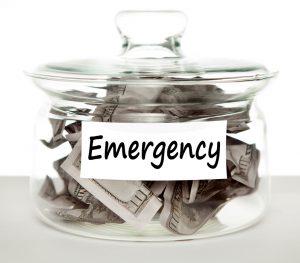7 Ways to Make Sure You Don’t Blow Your Budget in Retirement

Creating a budget before you retire, constantly reevaluating your budget after you retire and sticking to your budget are critical to making sure your nest egg lasts throughout your golden years.
If you haven’t created a budget or overall financial plan for retirement yet, here’s a road map you can use.
But once you have a budget set, it pays to continually work on developing discipline and financial savvy to stick to it.
To help you avoid common financial pitfalls in retirement and adhere to your budget, here are seven tips all pre-retirees and retirees should consider adopting:
1. Cut expenses while you’re still working
Reducing your expenses while you’re still collecting a paycheck has two major benefits:
- getting you used to living more modestly, and
- freeing up extra money you can turn around and add to your retirement savings.

The best way to cut expenses is to eliminate debt and pay off big-ticket items. High-interest debt should be the first to go — like credit card debt or personal loans. Next, pay off your car. If your car’s older, consider buying another one while you’re still working and making a big down payment to reduce the payment once you retire. Third, pay off your house and/or make any modifications your home will need that will allow you to age in place.
If you plan to live on Social Security alone, you’ll likely need to enter retirement with little to no debt.
2. Don’t assume living expenses will go down
A lot of people enter retirement assuming their cost-of-living will decrease once they stop working. This may not always be the case, which is why it’s critical to take a good, hard look at your spending and be honest about what expenses you’ll be able to eliminate in retirement.
Some expenses, like commuting, will surely decrease. But other expenses, like healthcare, will climb.
3. Don’t aim for a zero balance
While it’s a nice thought to plan on having just enough income to meet all of your living expenses, planning to have everything come out even every month isn’t always wise unless you have an emergency fund.
Unexpected expenses are bound to crop up and cut into your budget. Therefore, it’s important to ask yourself how you’ll pay for them when they rear their ugly head. These expenses can include:
- home repairs
- car repairs
- unexpected travel expenses
- medical/pharmaceutical costs
- variations in heating fuel/electricity costs, and
- replacement of electronics (TVs, cell phones, computers, etc.).
The best way to prepare for these expenses is to strive to have money left over at the end of every month. Just because you’re not getting a paycheck anymore, it doesn’t mean you should stop saving. If there are months where you spend less than you budgeted for, place those excess dollars in an emergency fund you can tap when unexpected bills pop up.
4. Be honest, really honest, with yourself
Of course, most people don’t purposely lie to themselves about the kinds of expenses they expect to have in retirement. However, they may not be asking themselves some of the harder questions either.
Some questions you want to ask:
- If my adult child asks me for financial assistance, will I help them? If so, how much am I prepared to give them, and will I ask them to pay me back?
- If I’m asked to make a charitable contribution this year, will I? If so, how much financial gift-giving can I afford?
- Am I going to ask that my adult children visit me for the holidays, or will I have to visit them?
- Is it reasonable to expect my home or car to not need a major repair this year?
- Am I prepared to turn down invitations to dine out with family and friends?
- Will I really stop shopping at higher-priced convenience stores and, instead, turn to grocery or big box stores?
Answering these questions honestly can help you budget, and avoid taking out loans or accumulating credit card debt.
5. Take a deep dive into your healthcare expenses
Healthcare may be the biggest expense you have in retirement. It’s also the hardest to project.
Ask yourself what your insurance will look like in retirement and what expenses it’s likely to cover. Then, ask yourself how you’ll fill those coverage gaps if necessary.
If your healthcare costs increased last year, expect them to increase by the same amount (if not more) this year — and expect them to continue increasing steadily year after year.
Long-term care insurance may be something you want to start looking into, as well as a membership with Friends Life Care, which can provide you with a Care Coordinator to help you assess your needs and create a truly customized approach to long-term care planning.
6. Ask for a senior discount

A lot of seniors are currently missing out on a boatload of discounts available to them. Many restaurants, retailers, utility providers, gyms, parks, movie theaters and other businesses offer discounts to seniors that aren’t advertised.
As a result, it pays to get used to asking, “Do you offer a senior discount?”
Here’s a list of more than 100 places that offer, or have recently offered, senior discounts.
7. Look for ways to reduce your tax burden
You may drop into a lower tax bracket when you stop collecting paychecks and enter retirement. But you may be able to take steps to reduce your tax burden even further — like by changing up your retirement plan withdrawals.
It can pay to talk to a financial adviser about ways to lower your tax obligations.
